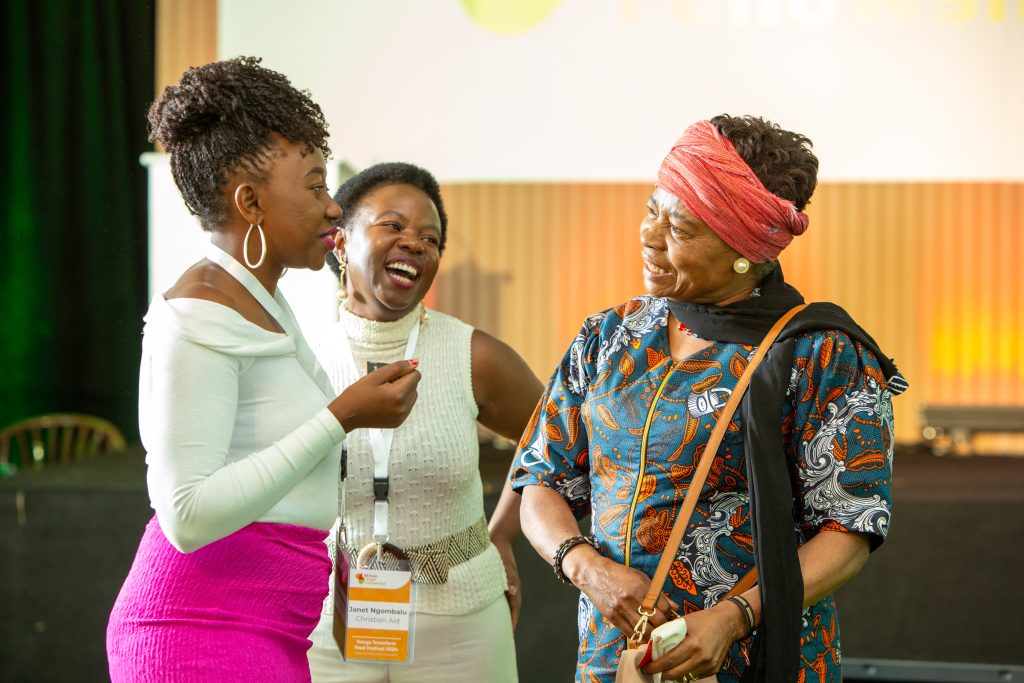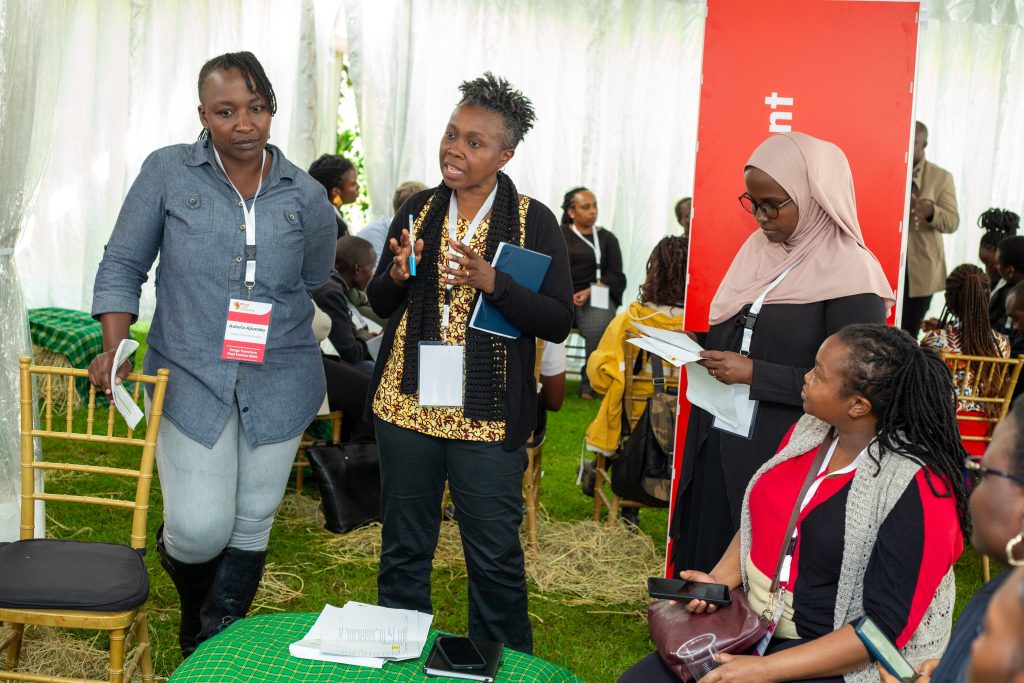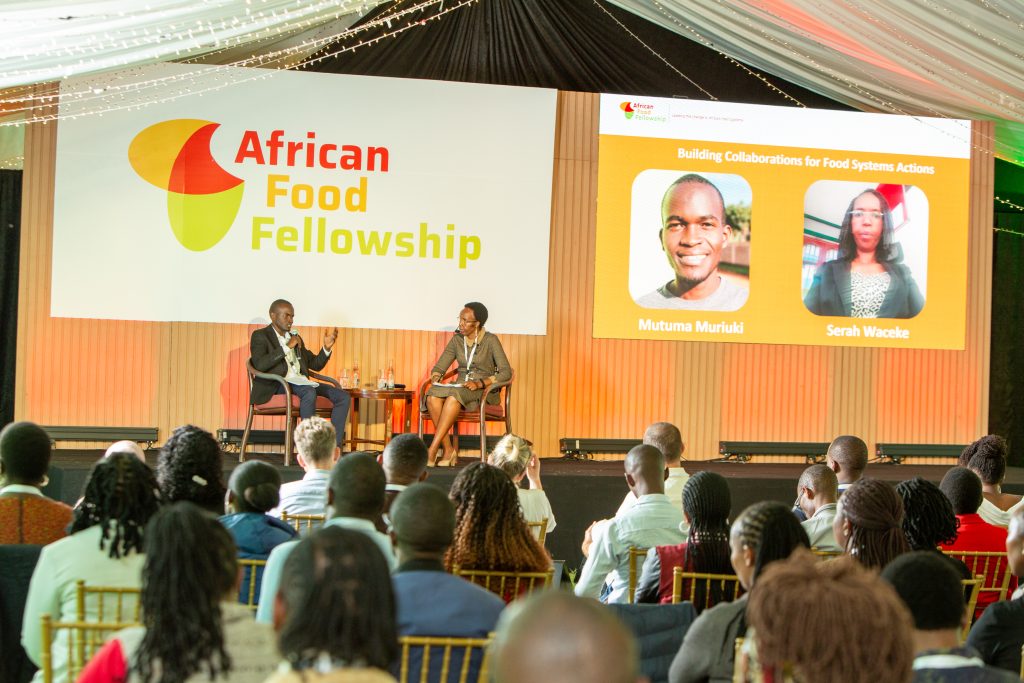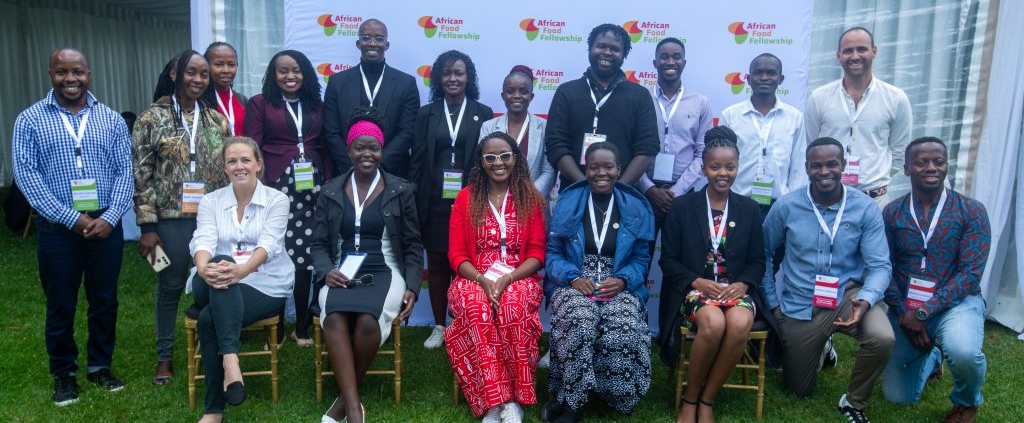African Food Fellowship hosts 3rd annual Kenya Transform Food Festival
Jaqueline Kubania &
Stella Odhiambo
Latest posts
Share:

The African Food Fellowship on 8 November, gathered farmers, researchers, entrepreneurs, government officials and other food systems practitioners in Nairobi for the Kenya Transform Food Festival 2024. The festival, now in its third edition, celebrates leadership action as a key catalyst for transforming food systems in Kenya.
It provides opportunities for like-minded individuals who share a passion for food systems to connect, interact and collaborate to create healthy, inclusive and sustainable food systems. This year’s festival was an immersive and inspirational experience showcasing how the Fellowship is championing food systems actions, which are initiatives that address complex problems within food systems and shift the underlying conditions that cause them.
“Although there is a lot of good work happening in the agricultural sector in Africa, there hasn’t been a great understanding of how to act systemically. The African Food Fellowship was borne of a need to link people already operating within food systems, and get them to ask: how do we collaborate and shift food systems to be good for people and the planet?”, said African Food Fellowship Deputy Director and Wasafiri MD Alex Rees in a keynote speech given at the event.

Guests included renowned nutrition expert and food systems leader Prof Ruth Oniang’o, and Kenya’s first daughter and founder of SMACHS Foundation, Charlene Ruto, who both lauded the Fellowship for its efforts to nurture leadership in Kenya’s agricultural sector.
During the event, Fellows had an opportunity to showcase their food systems actions and give guests a look at their personal journeys. They invited guests to make the experience their own by asking questions, giving feedback, and even joining in as collaborators.
“I am collaborating with two other Fellows to make school meals more nutritious for children. We want indigenous foods like cassava, omena, and traditional vegetables included in school feeding programmes because these foods are more nutritionally dense and better adapted to adverse weather conditions,” said Sylvia Kuria, an organic farmer who joined the Fellowship in 2022.

Robert Shumari, who is also an African Food Fellow, showcased his efforts to diversify nutrition and livelihoods in arid Kajiado County, where he is running aquaculture learning hubs to teach the pastoralist Maasai community how to rear fish.
“My community loses a lot of livestock during droughts, which leaves them impoverished and unable to meet their families’ nutrition needs. I am teaching them to farm fish in a sustainable way so that they have food and income even during the driest months,” he said. He noted that so far, over 300 people have attended his workshops and almost 200 of them have started farming fish. Among his biggest collaborators are the county government of Kajiado and the local community, whose buy-in and participation is essential for long-term success.

The festival also featured a live podcast session where economist Sarah Wachekeh and agri-entrepreneur Mutuma Muriuki took guests through the vulnerable art of building collaborations as a path towards Food System Actions. They got candid about the opportunities that collaborations open up (that are not accessible to singular actors), the challenges and tensions they have had to navigate while working with others, and what success looks like when collaborations work.
“The days of working in silos are over,” noted Sarah. “You have to bring on board as many actors as required in order to achieve meaningful impact.”

The African Food Fellowship approach to food system transformation is built on collaborative leadership. By creating an enabling environment for food system actors who work in different parts of Kenya’s food system to collaborate, they are equipped with analytical, methodological and design skills to address familiar issues in unfamiliar ways, focusing on drivers of systemic change. These initiatives provide creative solutions to the most pressing challenges facing food systems today, including climate change, malnutrition and poverty.

“The Fellowship believes that systemic leadership can be taught. We back people working on systemic change and give them the support they need to do good work,” said Brenda Mareri, African food Fellowship Kenya Dean and Implementation Lead and Wasafiri’s Senior Manager for Food Systems.

This article was originally posted on the African Food Fellowship website.








